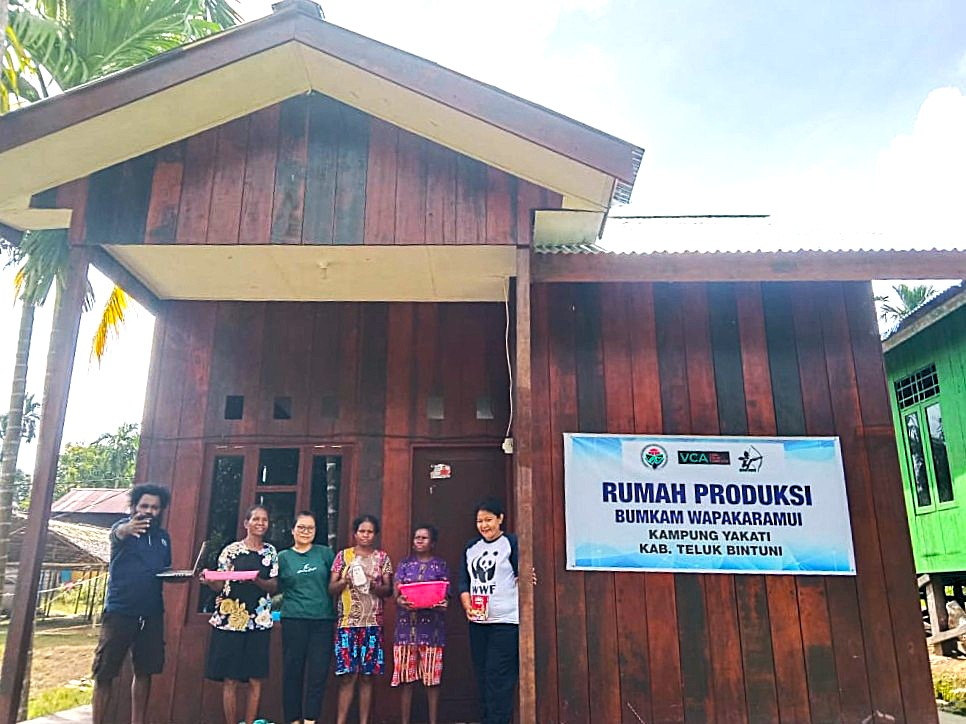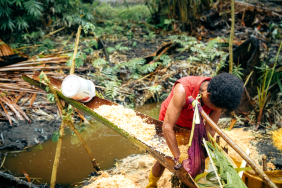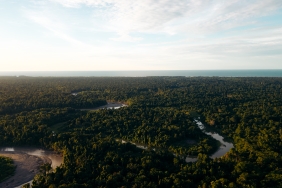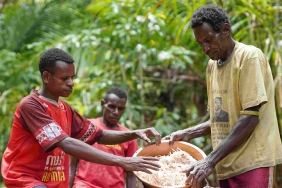ADEMINA AND SAGO COOKIES: THE FOOTSTEPS OF INDIGENOUS WOMEN FROM YAKATI
Ademina Mansumbauw is one of the strong women from Yakati Village, Teluk Bintuni Regency, who is active in the Indigenous Women's Community (KPA). She is one of 29 KPA members who consistently participate in various trainings organized by Panah Papua NGO. This community serves as a forum for empowering indigenous women to enhance their skills, achieve economic independence, and preserve their local culture. One of the most memorable trainings for Ademina was the sago cookie-making training. The training not only taught how to make cookies, but also covered the entire production process, from processing sago into flour to packaging techniques for the final product. For Ademina, this training provided new insights into the economic potential of local foodstuffs that had previously been consumed only traditionally.
Sago was chosen because Yakati Village has abundant sago plant potential. Panah Papua, in partnership with WWF-Indonesia through the Voices for Just Climate Action (VCA) Program, assisted in sago processing. Sago is a local food with a high carbohydrate source, but the community has not maximized its use. The sale of sago in the form of 'tumang' (wet sago wrapped in sago leaves) is not too much in demand by the community. The people of Yakati Village only process sago into papeda and roasted sago (porna) for daily meals.
With the spirit of learning and sharing, Ademina is now one of the driving forces in her community in promoting sago cookies as the village's flagship product. She believes that through training like this, indigenous women can contribute more to local economic development while preserving their cultural heritage. To date, 6 of the 29 KPA members trained are still pursuing activities that are new to them. This is also thanks to the invitation of Ademina Mansumbauw. "The method of making and the tools used in making sago cookies are quite easy so that I and other mothers in the KPA are enthusiastic about processing sago cookies," she said.
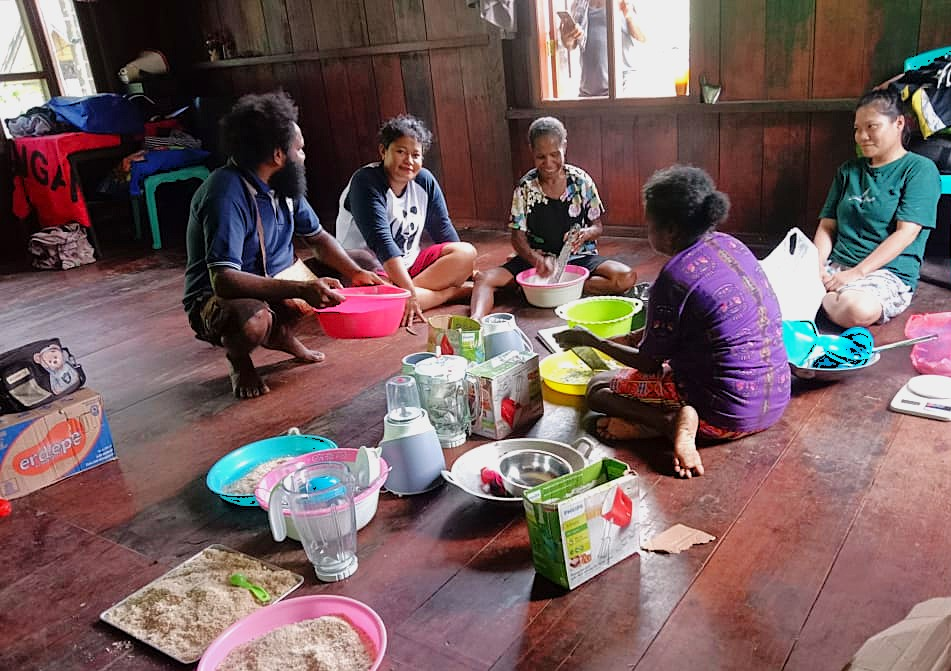
Six indigenous women from Yakati Village are not only keeping the tradition, but also becoming the economic backbone of their families. Through sago cookie-making training facilitated by Panah Papua NGO, they have managed to turn local food into high-value products. The sago cookies they produce are not just a snack, but a symbol of independence and community collaboration.
Seeing the great potential of this product, Panah Papua encourages the improvement of production quality and legality. Together with the Indigenous Women's Community (KPA) and the Wapakaramui Village-Owned Enterprise (BumKam), they applied for a Home Industry Processed Food Production license (P-IRT) through the Health Office and PTSP. As a result, Yakati Village's sago cookies are now officially marketed with a 100-gram package for IDR 25,000. It didn't take long for the sago cookies to become widely known. From small stalls to shops in Bintuni and Manokwari, such as Hadi Supermarket, Orchid Supermarket, Kalawai Mart, and Melanesian Beach Coffee Cafe.
This local product has a place in people's hearts. Behind each pack of cookies, there is a story of empowered indigenous women, a united community, and a taste of Papua that can now be enjoyed by everyone. This product has also been featured in the Papua Muda Inspiratif (PMI) exhibition in Manokwari, the GKI Papua Young Members Fellowship (PAM) Gathering in Bintuni, the West Papua Fordasi Exhibition 2023 in the West Papua Governor's Office area, the Papua MSME Exhibition commemorating the 79th Indonesian Independence Day in 2024 in Manokwari, the 1st Indigenous Forest Festival Exhibition in Tanah Papua, the Indonesia Climate Week Exhibition in Jakarta in 2024, the Climate Champion Festival Exhibition in Sorong in 2025.
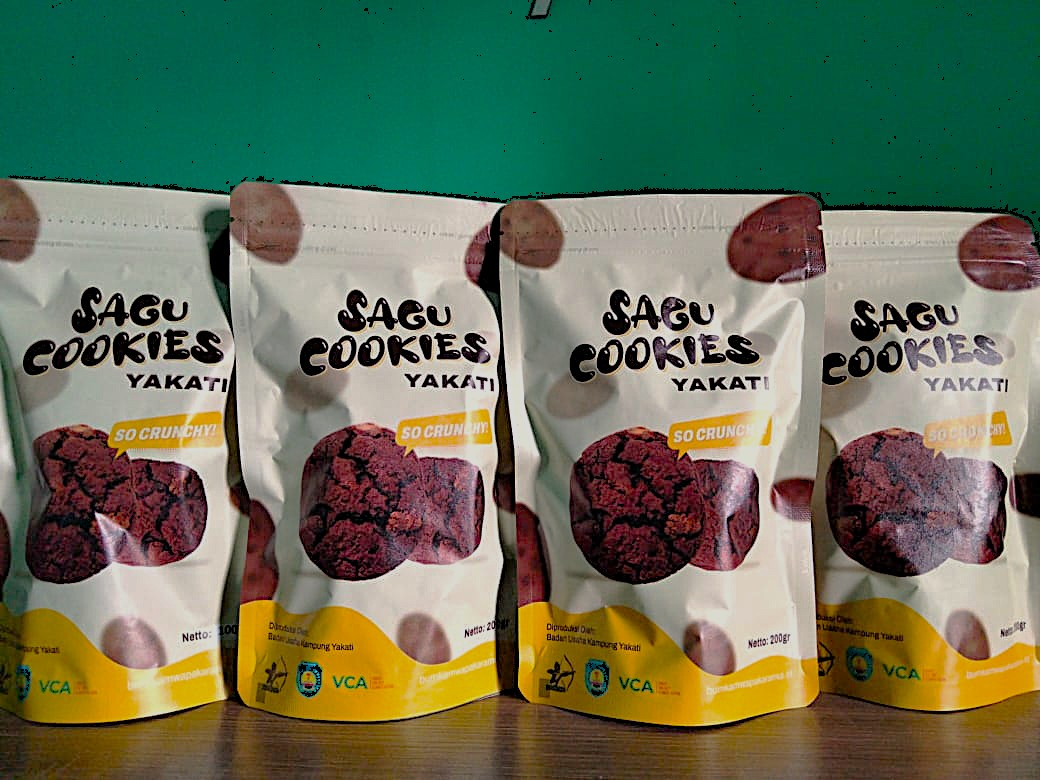
"It's amazing the results of entrepreneurs from Papua, hopefully the Teluk Bintuni Regency Government will continue to encourage programs that are more pro to the community through an extraordinary economic bridge," said one of the youth from the PAM Klasis Biak contingent. With the increase in knowledge in utilizing local sago food resources in Yakati Village, sago can be processed innovatively as a product that is favored by consumers and adds to the family economy. (*)

